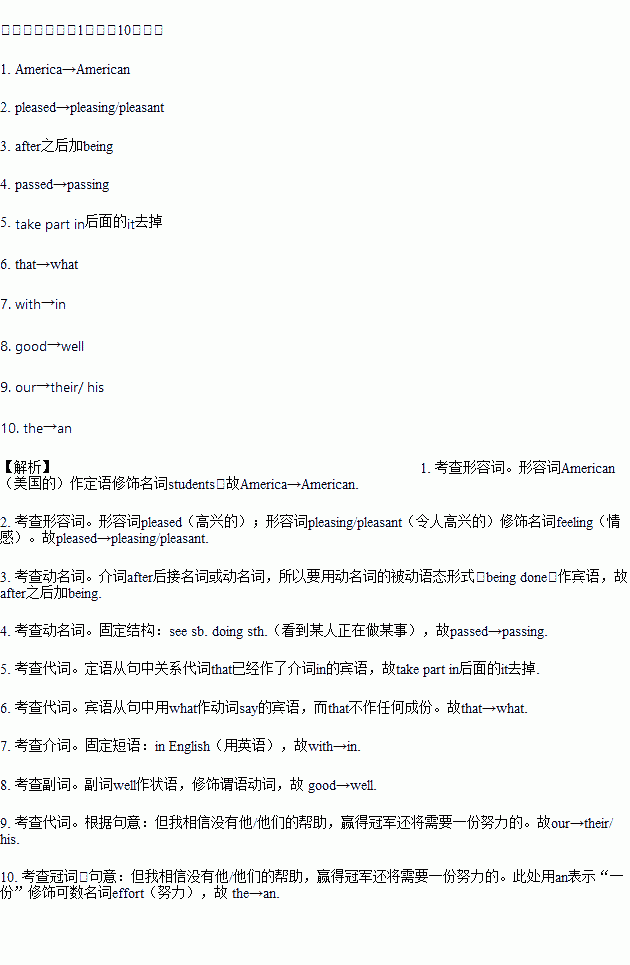题目内容
假定英语课上老师要求同桌之间交换修改作文,请你修改你同桌写的以下作文。文中共有10处语言错误,每句中最多有两处。错误仅涉及一个单词的增加、删除或修改。
增加:在缺词处加一个漏字符号(∧),并在其下面写出该加的词。
删除:把多余的词用斜线(\)划掉。
修改:在错的词下划一横线,并在该词下面写出修改后的词。
注意:1.每处错误及其修改均限一词。
2.只允许修改10处,多者(从第11处起)不计分。
I’m Li Hua, a senior three student in our school. Last Monday I received three America students. We had a wonderful time. And I tasted the pleased feeling of friendship.
In the afternoon, after divided into two groups, we began to work for the coming English speech context. Just as I was wondering what to do next, I saw a familiar figure passed by our classroom. It was my English teacher. I wondered that he would say. He said that it was a competition that everyone would like to take part in it. He added that was pretty fluent with English, but I needed to arrange my time good.
In the evening, at about half past ten, we finished working. I don’t know the result, but I’m sure without our help, winning the championship will be the effort.
 名校课堂系列答案
名校课堂系列答案
